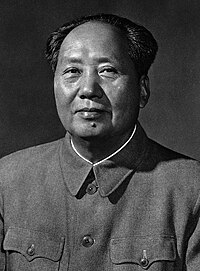
Photo from wikipedia
Traun), who receives some attention from Allen, also played a significant role, including providing training and employment opportunities for those who subsequently travelled overseas, including to the United States. In… Click to show full abstract
Traun), who receives some attention from Allen, also played a significant role, including providing training and employment opportunities for those who subsequently travelled overseas, including to the United States. In this respect, some nod to the relevance of key figures and developments in other countries that had an impact on both transnational dissemination and on the two nation-states discussed here would have provided a more balanced account. In connection with this caveat, it is disappointing that, despite the breadth of Allen’s research in primary and secondary sources, there are no citations of work by key British scholars, notably the late Froebel Professor of Early Childhood at the University of Roehampton, Kevin J. Brehony. Instead, the focus of Allen’s reading has been on US and German sources, yet Brehony’s reflections on the revision of Froebelian pedagogy are pertinent to the developments in the United States that Allen explores in Chapter 4 (Kevin J. Brehony, ‘Transforming Theories of Childhood and Early Childhood Education: Child Study and the Empirical Assault on Froebelian Rationalism’, Paedagogica Historica 45, nos 4 and 5, 2009). Brehony problematised the impact of child study psychologists, including Hall and Dewey, pointing out that their work undermined the status of the women who had advocated for Froebelian pedagogy and, in some cases, spent considerable sums of money on supporting kindergartens and training programmes. This reviewer’s own work has commented on the issue of Froebel’s conflicted attitudes to higher education and professional roles for women, as identified by Henriette Schrader Breymann (Jane Read, ‘Froebelian Women – Networking to Promote Professional Status and Educational Change in the Nineteenth Century’, History of Education 32, no 1, 2003). Nevertheless, in referring extensively to German-language literature, Allen has opened up to non-German-speaking readers insights from otherwise inaccessible sources. Together with other recent literature, this book contributes to a fuller understanding of the complex and sometimes conflicting processes by which this most important of early childhood pedagogies has been disseminated and interpreted.
Journal Title: History of Education
Year Published: 2018
Link to full text (if available)
Share on Social Media: Sign Up to like & get
recommendations!